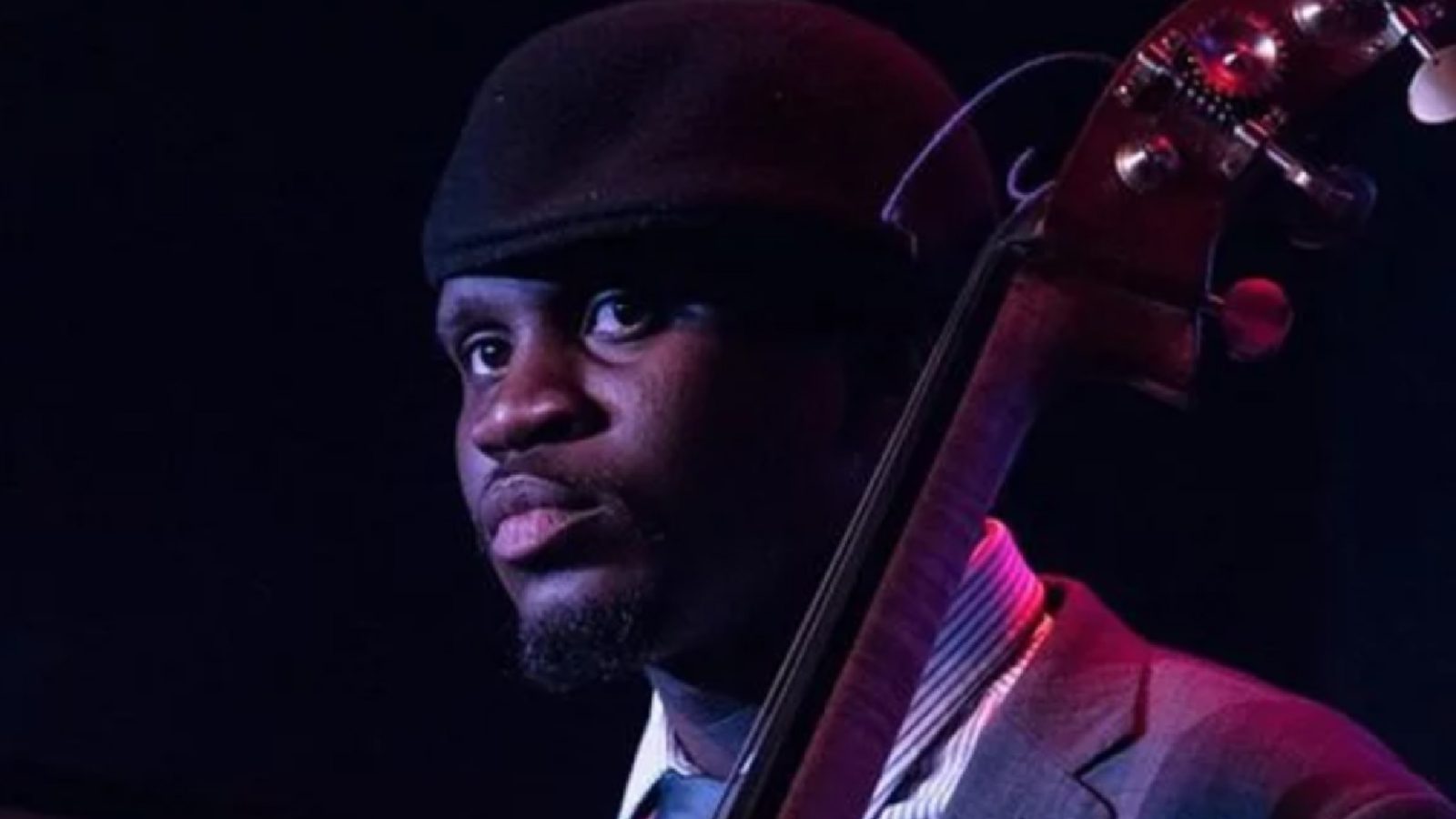
Daniel Casimir discusses the importance of jazz re:freshed and being prevalent in London’s jazz scene
Prolific upright bassist Ron Carter once said that ‘a good bassist determines the direction of any band’. Daniel Casimir is both a good bassist and a direct, determined band leader, influenced by luminaries such as Carter and invigorated by the scene to which he is a vital contributor, in South and West London. Add to that his compositional and collaborative skills and you have a rounded artist who is “heard” just as clearly as his counterparts at the piano or the drum set.
Named Young Jazz Musician of the year by The Musician’s Company in 2016, his debut EP Escapee was released by jazz re:freshed last year and picked up plaudits for its expansive arrangements and energised recital. We’re thrilled to welcome Casimir and his band to the venue in February and touch upon the aforementioned Miles Davis-collaborator, his London-based peers and the jazz re:freshed residency in our wide-ranging conversation with the up-and-coming talent.
You were heavily involved with jazz re:freshed last year, releasing and launching live your EP with them, plus recording a raw duo session with Tess Hirst for a jazz:refreshed and Canvas collaboration. What are the organisation doing for jazz music in Greater London and how has their work impacted upon you as a musician and music fan?
‘Jazz re:freshed are crucial not only to the London Jazz scene but to the whole of the UK. Their regular weekly nights in West London allow bands to showcase new improvised music without necessarily already having a following, as long as the music is good they will support you. Now that they have developed their label, it was allowed them to take their ethos globally and to showcase bands around the world.’
You’ve worked with some fantastic musicians recently, including Moses Boyd, Ashley Henry and Joe Armon-Jones; all artists tipped for big things in 2018. At what point did you first collaborate with these players and what have you taken from your interactions with them? Beyond that, is there any one musician with whom you go way back and have that near-telepathic relationship?
‘I first met both Joe and Moses around in the London Jazz scene. I met Joe coincidentally in a function in West London and I first performed with Moses in a project dedicated to Martin Luther King, both in 2012. Over the years the combination of myself, Joe and Moses have been put together for several projects, such as Jasmine Power and Nubya Garcia. So when it came to putting a band together for Escapee, it was a natural choice to pick them both. I met Ashley at a Jam session in London called Charlie Wrights, where I believe we first performed together as well. From meeting all of the musicians mentioned, I have learnt the importance of being present and visible on the scene, as the possibilities gathered through chance meetings are endless.’
Ron Carter is said to be the most recorded jazz bassist in history, having amassed in excess of 2,000 recording credits since beginning his career in the early sixties. Does he rank among your favourite jazz bassists and as a mantra for life as a working musician, would you say quality trumps quantity?
‘For me, the Miles Davis 1964 concert is a masterclass on how to play the bass within the context of Jazz. Ron Carter displays the perfect balance between being supportive and interacting with the band and the relationship between Ron Carter, Tony William and Herbie Hancock is mystical.
I believe that quality always triumphs quantity however, quantity can display quality when being a sideman in other people’s projects. With your own project, quality is the most important factor. Releasing new music too soon after a previous release can affect the legacy of both recordings. Although there is a strong argument that an E.P. followed quite closely by an album can be beneficial, it could result in the initial recording not getting the attention that it deserves and that some people may be mentally exhausted from continuous release. Quantity is an important factor when playing in other people’s bands as being part of a large variety of projects and recordings can be seen as a reflection of your experience as a musician.’
Talking of Carter, he’s pictured with his children on the cover of his second LP Uptown Conversation; your son heavily influenced the titling of your EP Escapee, can you tell us the tale behind the title and the process that led you to decide upon the final five tracks on the EP?
‘The title track Escapee is dedicated to my son, who at age of 2 pushed his toys to the stairgate in front of his room and climbed over, making him the escapee. This track like the other tracks on the E.P. documents me becoming a father for the first time and being a jazz musician in London.
The way in which I put the record together was quite long and took over 2 years. I wanted to have more tunes than I needed (I think I had around 20) so it then became a matter of which tunes were the strongest and worked well together. I wanted to compose in this way to ensure that the E.P. was at its best.’
When writing tracks for the EP, were you using the bass alone or were you also working through ideas on the piano and with pen and manuscript? Did you know who the musicians you would be recording with would be and did you have them and their qualities in mind when thinking about arrangement and solos, or was it all about a vision of the composition and fitting everything else around that?
‘In my experience I have found the notion of planning within composition and music to be an overlooked quality compared to the other arts. Compared to improvisations, composing has this unique quality of existing outside of time and space. For instance, you can write the ending of a tune before you have come up with an intro. For Escapee I wanted to explore planning a piece without having the music too rigid for the musicians to then explore.’
What’s exciting you musically at the moment and what are you hoping to see in the music industry in 2018?
‘A lot of musician friends that I know are either recording or releasing new music this year which will be very exciting. Ashley Henry has released his new E.P. Easter on Sony and Joe Armon-Jones is planning on releasing his solo project in May. I have recently finished recording a new album with Camilla George, and pianist Sarah Tandy is set to record her debut release. I believe that the music industry has begun to support young jazz musicians’ interpretation of what Jazz is and I hope that their support continues and widens.’
Finally, who joins you in the band for your Band on the Wall next month and what can attendees expect from the set?
‘The band that joins me for Band on the Wall is the same line-up that was used for the Ronnie-Scotts live stream. We have:
Tess Hirst: Vocals
Sarah Tandy: keys
Tobie Carpenter: Guitar
Olly Sarkar: Drums
We plan on playing music from the E.P. as well as trying out new material for the album that Tess and I are currently writing.’







